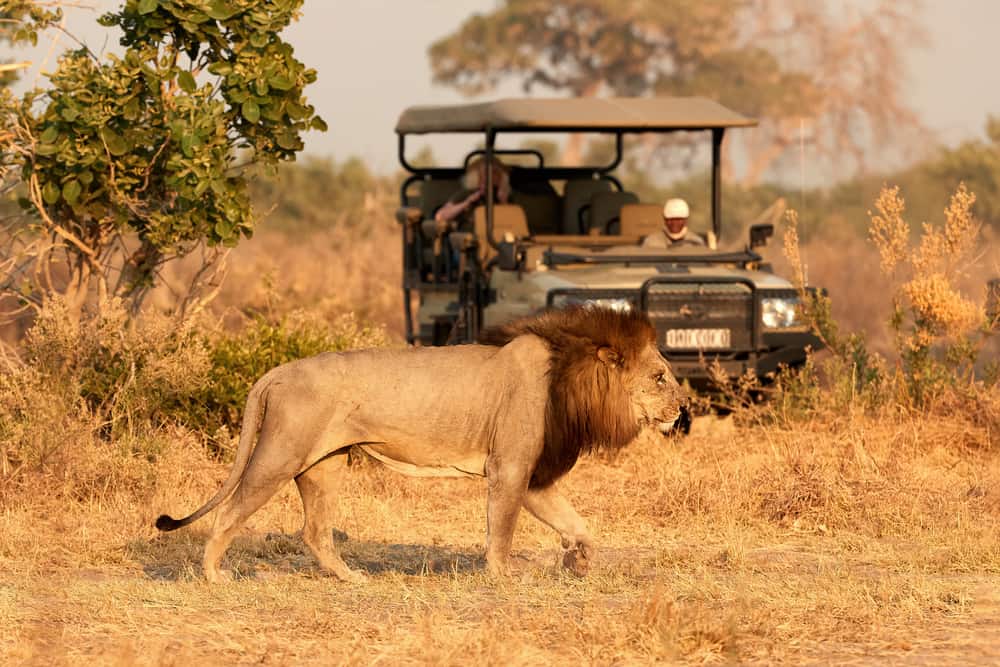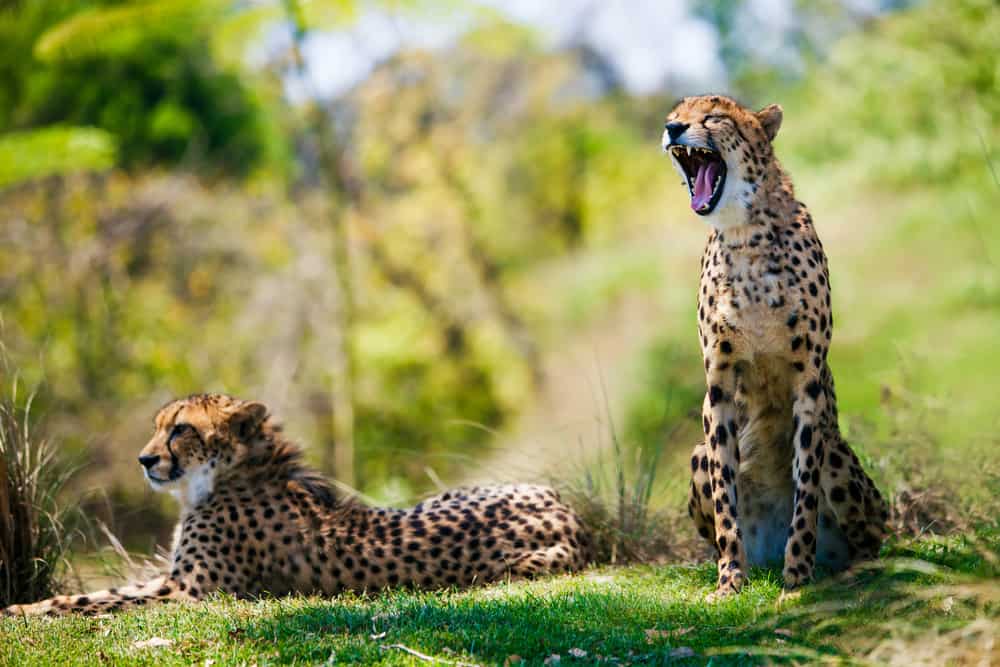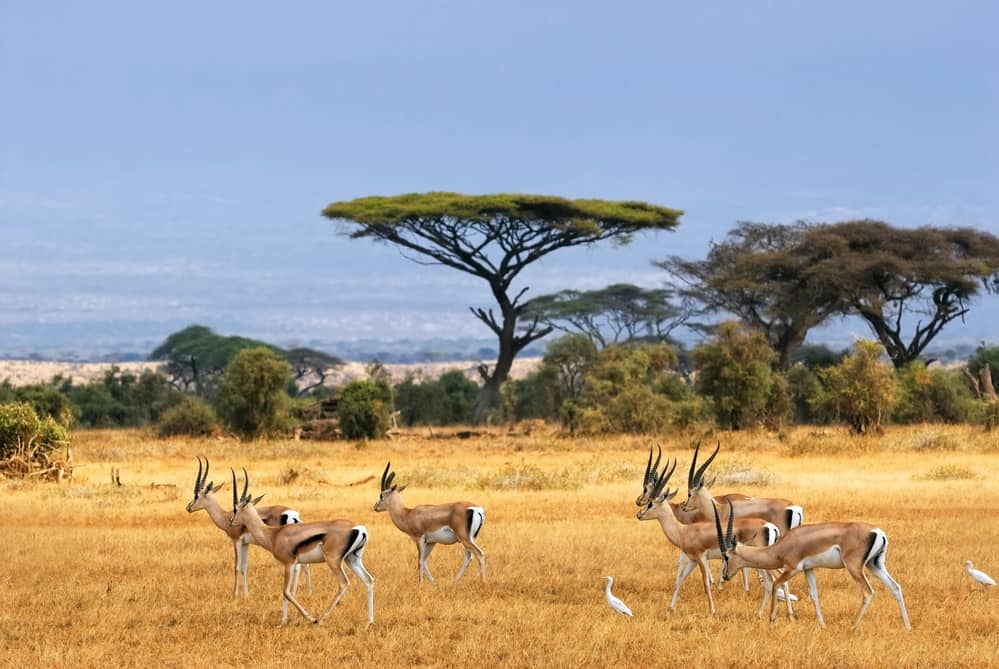There is no place like Africa when it comes to safaris. From breathtaking landscapes to close, but safe, encounters with wildlife, African safaris offer a unique blend of adventure and natural beauty. Whether you’re a seasoned traveler or a first-time safari-goer, and whether you’re drawn to the iconic Big Five, cultural interactions with local communities or the thrill of walking safaris, here’s everything you need to know to make the most of your African safari.

What is the best place for an African safari?
Africa’s diverse ecosystems provide a variety of wildlife and landscapes, but most national parks are concentrated in East Africa and Southern Africa. The choice of location depends on the type of wildlife you want to encounter, the landscapes you want to witness and the cultural experiences you seek. While there are many options to choose from, the continent’s safari crown jewels include:
- Serengeti National Park and Maasai Mara Reserve in Tanzania and Kenya respectively, where the annual Great Migration unfolds — a spectacle of millions of wildebeest and zebras on the move. If you visit Tanzania, make sure to also visit the Ngorongoro Crater.
- Kruger National Park in South Africa, and Okavango Delta in Botswana, provide a home to the famed Big Five and an array of other fascinating species.
- Sossusvlei, Etosha National Park or Damaraland in Namibia, which offer dramatic landscapes and dunes, along with a wide variety of wildlife.
- Volcanoes National Park in Rwanda or the Bwindi Impenetrable National Forest in Uganda, which offer unique gorilla trekking opportunities.
“I am in the midst of planning an African safari for my 50th birthday. The most important thing to me is that both I and the animals I encounter — and I want to encounter as many as possible — are kept safe. That said, it’s also important to me that where we stay at night has indoor plumbing. I can deal with a lot, but I want some of my creature comforts!”
— Michelle Price, Honest and Truly
When is the best time to visit?
July to September is your best bet for an African safari. However, understanding the distinct seasons of each destination ensures a safari experience that aligns with the natural rhythms of the landscape and its inhabitants.
For instance, if you plan to visit the Serengeti or the Maasai Mara, the best time is during the annual Great Migration, when millions of wildebeest and zebras move in search of greener pastures. This migration typically occurs from July to October, offering a front-row seat to the dramatic river crossings and the circle of life in its rawest form.
If you’re venturing to South Africa, Botswana or Namibia, the dry season from May to October is ideal. As water sources dwindle, wildlife congregates around remaining waterholes, making it easier to spot them. The Okavango Delta, in particular, becomes a haven for birdwatchers during this time. For a more intimate gorilla trekking adventure, June to September and December to February provide favorable conditions for trekking in the lush forests.

How do you pick a tour operator and accommodations?
Selecting the right tour operator and accommodations is pivotal for a rewarding African safari experience. The best way to pick an operator is by researching reputable tour operators with a proven track record for ethical practices, knowledgeable guides and a commitment to sustainable tourism. Reading reviews can provide valuable insights into the reliability and quality of a tour operator’s services, as well as their experience in that specific region.
There are typically three levels: budget, mid-range and luxury, each offering a unique experience. Budget safaris run from $500 a day, while luxury ones can go as high as $2000. To get the best bang for your buck, identify your priorities — whether it’s proximity to wildlife hotspots, eco-friendly practices or cultural immersion — and choose accommodations that align with your preferences. You should also consider contributions to local communities and wildlife conservation efforts, amenities, safety standards and reviews from previous guests.
What activities can you do as part of an African safari?
When people think of a safari in Africa, they’re thinking of a classic game drive, where you can witness the majesty of lions and elephants in their natural habitats from a safe vehicle. But it can be much more than that. Whether it’s birdwatching, bush walks or simply enjoying the tranquility of the savannah, an African safari can offer many activities for a personalized and memorable safari experience.
For a closer connection with nature, consider a guided walking safari, where trained guides will lead you through the wilderness, unveiling the wonders of local flora and fauna. Engage with the local communities through cultural interactions, visiting villages and experiencing traditional customs, music and dance. If you want an out-of-the-box experience, consider a hot air balloon safari, a specialized photography safari, a canoe safari or a night safari.

What do you need to pack for an African safari?
Most safari operators will also provide lists as a starting point, but a good rule of thumb is to focus on comfort and practicality for your specific destination. Bring lightweight, long-sleeved shirts and pants for sun protection, especially during game drives, and clothes that layer since the nights can be chilly. Sturdy hiking boots are essential for bush walks, while a wide-brimmed hat, sunglasses, and a swimsuit for relaxation round out your clothing needs. Don’t forget a compact rain jacket for unexpected weather changes.
Accessorize wisely with binoculars for wildlife observation and a camera or smartphone with a zoom lens to capture memorable moments. Sunscreen, insect repellent and a basic first aid kit are crucial for health and personal care. Carry a reusable water bottle to stay hydrated, and consider a daypack for excursions. Ensure you have the necessary travel documents and personal identification, and pack a multi-tool or knife for convenience. Keep your luggage lightweight and durable, and don’t forget travel adapters for electronic devices.
What are some good budgeting tips to follow?
Research and compare tour operators, accommodations and transportation options to find the best value for your budget. Traveling during off-peak seasons can mean lower prices for both tours and accommodations, providing a double benefit of cost savings and a more intimate safari experience. Group travel can also be a budget-friendly option. Don’t forget to check out insurance, it’s important to get the best travel insurance for an African safari.
Mid-range accommodations strike a balance between comfort and affordability, ensuring a pleasant stay without the expense of luxury lodges. Flexibility with travel dates, prioritizing must-see activities and monitoring currency exchange rates are all practical measures to optimize your budget. Finally, planning and booking well in advance can secure lower prices and availability, especially during peak seasons.
Embarking on an African safari is a unique and unforgettable adventure, and with the right knowledge, it can be both fulfilling and budget-friendly. Pick a good destination and time to visit, research your safari operator and accommodations, figure out what activities are on your must-do list, and pack wisely. But most importantly, don’t forget to pack your sense of wonder because an African safari promises not just a journey but a lifetime of memories.
Shruthi Baskaran-Makanju is a food and travel writer and a global food systems expert based in Seattle. She has lived in or traveled extensively to over 60 countries, and shares stories and recipes inspired by those travels on Rainy City Life.
Very usefulful information. This is my bucketlist